- About us
- Expert Services
-
Back
Expert Services
See all - International Reach
- Global Customs Clearance
- Delivery Solutions
- Specialised Delivery
- Commerce
-
- Geopost Live
-
Back
Geopost Live
See all - Press Releases
-
- Driving change
-
Back
Driving change
See all - Sustainability
- Innovation
- Market Insights
-
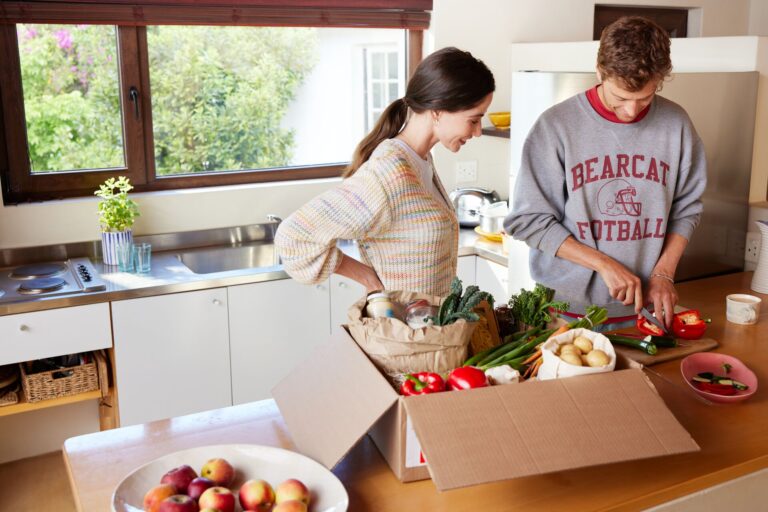
Launching a robust fresh food delivery service
DPD fresh was launched in Portugal in October 2023 to meet the rising demand for fresh food delivery across the country. This additional location builds on the proven success of the DPD fresh service in BeLux, France, Lithuania, SEUR frío in Spain and BRT fresh in Italy, drawing on Geopost’s extensive infrastructure and expertise to support producers, businesses, and end-consumers.
The decision to expand into Portugal was driven by two significant market trends. First, consumer demand for fresh food delivery is on the rise. According to the Geopost e-shopper barometer, 72% of regular e-shoppers in Portugal who order fresh food and beverages online opt for ready-to-eat hot and cold meals. Secondly, Portuguese consumers are changing their consumption habits, with an increasing preference for fresh, locally sourced, and sustainable food options, including dietary, vegan, and organic products. The launch of DPD fresh in Portugal directly addresses these evolving market needs, paving the way for sustained growth in the sector.
Identifying and responding to specific market needs
The DPD fresh offering in Portugal caters to both individual consumers and businesses, meeting diverse needs across the fresh food delivery supply chain. The service supports B2C orders such as groceries and pre-prepared meals, while also accommodating B2B clients with specialist deliveries of products including dairy, premium meats, pasteurised eggs, and high-value fruits and vegetables.
For smaller businesses and producers, DPD fresh provides a vital solution to a common challenge: reaching markets beyond their immediate geographic area. Many smaller producers, even those with their own delivery fleets, face limitations in scaling operations or expanding nationally.
Without access to large-scale logistics solutions, they risk missing out on significant sales opportunities. The DPD fresh service bridges this gap with a well-established network of vehicles capable of fresh food delivery nationwide within 24 hours, enabling businesses to meet demand across the country while maintaining the quality and safety of their products.
As the team at Dona Marmita, DPD fresh’s first customer in Portugal, puts it: “DPD fresh allowed us to grow beyond our city and to have customers all over Portugal.” They started with just 200 shipments per month and now send around 900, delivering to cities so remote they had to double-check their map—“but I know DPD fresh Portugal delivers there,” they added.
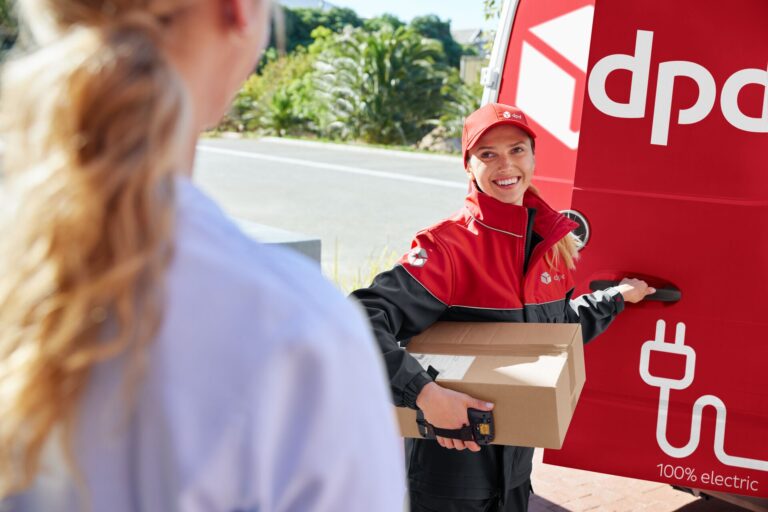
The strategic steps to ensure food delivery market success in Portugal
To establish a strong presence in the Portuguese market, DPD concentrated on building the infrastructure necessary for reliable temperature-controlled deliveries. This robust infrastructure ensures the delivery vehicles in DPD’s fleet, operating through 14 stations nationwide, are ready to meet the evolving needs of businesses.
DPD Portugal has enhanced its logistics capabilities by equipping linehauls and platforms with cold rooms to preserve product quality. In 2025, 230 thermic mobile containers, 320 IoT temperature sensors, 12 cold rooms, and around 8 refrigerated vans were already in operation. The company plans to continue increasing the number of fully refrigerated vans in high-activity areas, further enhancing its ability to serve clients efficiently.
Keep cool: Ensuring cold chain integrity
Maintaining cold chain integrity has been a cornerstone of DPD Portugal’s strategy. From collection to delivery, food products are kept within a controlled temperature environment to ensure their quality and safety. To achieve this, the company integrated IoT sensors into its isothermal bags, linehaul containers, refrigerated vans and cold rooms, which record temperature data every 10 minutes. This information is managed through a software system that tracks conditions in real time and alerts the team to any anomalies. In taking these proactive measures ౼ and providing the latest temperature reading upon delivery ౼ DPD ensures full transparency and accountability, reassuring clients of the quality of their deliveries.
By providing real-time temperature data from the latest readings and temperature curves, the service offers professional clients greater visibility and peace of mind, reinforcing its commitment to quality and safety. If needed the temperature curve is also made available to the shipper as well. These strategic initiatives have positioned DPD Portugal as a leader in the fresh food delivery market, ready to meet the demands of businesses and consumers across the country.
The advantages of having a global network by your side
DPD Portugal benefited significantly from the scale and expertise of other Business Units across Europe including France, Italy, Lithuania, Poland, and Spain. Before its launch, the team tapped into the knowledge and experience of the Geopost food network. This community convenes regularly via monthly calls and in-person meetings several times a year to share insights, discuss business strategies, and explore opportunities for improvement and development to better serve diverse markets. This collaborative knowledge-sharing process not only provides insights from teams that have already launched the service in other regions, helping to avoid common pitfalls and accelerate implementation, but also equipped the team in Portugal with proven tools and strategies.
Being a part of the dense network at Geopost instilled confidence in the local market, enabling DPD Portugal to reassure stakeholders that, while the service was new in the country, it was supported by the extensive expertise of successful operations across other Business Units.
Tapping into local market feedback
The team also sought feedback from key customers before the launch, testing the service to identify what worked and what improvements were necessary. This collaborative approach provided invaluable input, ensuring the offer met customer needs and expectations from the outset.
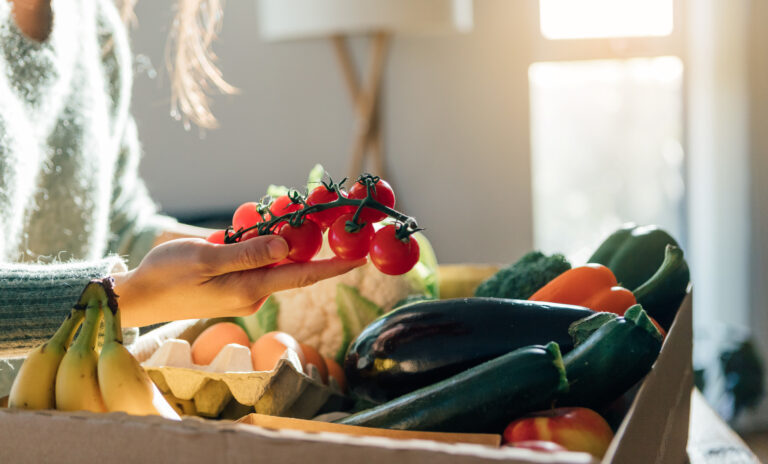
Measuring success in the Portuguese food delivery market
The success of any service is often measured by how much it empowers its customers to grow. For example, DPD Portugal’s new service helps small businesses boost shipping volumes and expand their reach into more distant markets, enables larger companies to lower their minimum order value to attract more customers, and provides all clients ౼ regardless of size ౼ with daily nationwide coverage to better serve their customers' needs. Consumers have also caught on to the trend, with 88% of online fresh food delivery buyers transforming into frequent customers (at least once a month) following their initial order.2
The service has been widely praised, arriving at an opportune moment to transform the local market. As Olivier Establet, CEO of DPD Portugal, observed, “The rollout of DPD fresh is only comparable to what happened 30 years ago with express transport of non-food orders, which revolutionised the market by offering a new level of service.”
This comparison highlights the transformative impact of DPD fresh, positioning DPD Portugal as a game-changer in the food delivery sector. Just as DPD revolutionised express non-food logistics with the introduction of track-and-trace technology three decades ago, it has once again shaped the food delivery market with DPD fresh.
What’s Next for DPD fresh Portugal?
DPD fresh’s rollout has been a decisive response to a specific gap in the local food delivery market, combining expertise in cold chain management, strategic infrastructure investment, and localised market insights. Thanks to DPD Portugal’s extensive network and Geopost’s specialised food market expertise, the service is well-positioned to streamline fresh food delivery across the country.
By maintaining a focus on speed, reliability, and innovation, the DPD fresh service as a whole continues to set new benchmarks in the temperature-controlled delivery market. The teams remain dedicated to engaging with customers, gathering feedback, and embracing continuous improvement to refine its offering. Through this commitment to innovation and responsiveness, keep an eye out on how DPD fresh network is shaping the future of fresh food delivery logistics.
Ready to discover our food delivery services throughout Europe?
Check out our comprehensive map!
Ever wonder how the Geopost network is connected to food expertise? As pioneers in the food parcel delivery sector, we connect producers, wholesalers, retailers, supermarkets, restaurants, and individual customers ౼ all through a seamless logistics chain built for freshness and precision.
Below check out just a few of our top Food stories, each highlighting the expertise behind food delivery.
Appetiser: fresh moves on the menu
BRT fresh expands its footprint and changes the delivery game in Italy
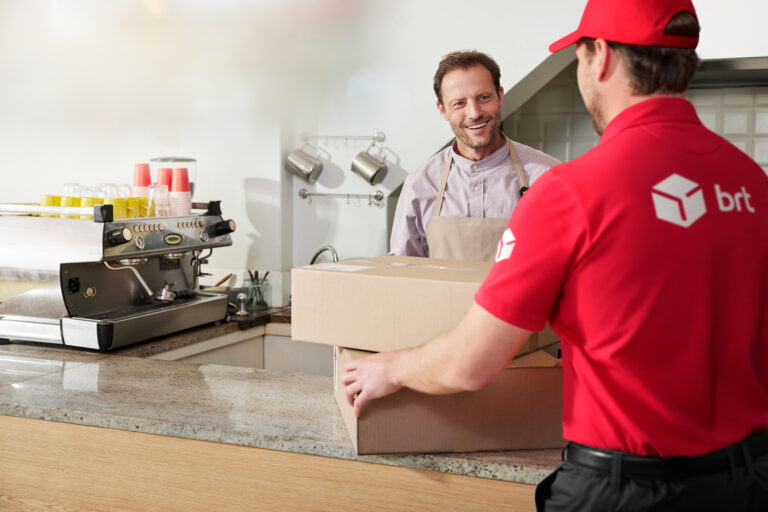
BRT, the leading express transport network and the only provider to guarantee delivery throughout Italy in under 24 hours, is strengthening its BRT fresh service ౼ offering fast, reliable delivery of fresh food products across both B2C and B2B markets.
-
At least 12 operational centres will be fully operational by the end of 2025.
-
With ongoing investments in specialised logistics and an expanded transport network, time slot delivery, constant shipment monitoring and a new Fresh service that promises a temperature-controlled environment between 0 and 4°C, BRT is setting the pace for food logistics innovation.
Everything you need to know >
Main course: serving cold-chain excellence
Behind the scenes of temperature-controlled delivery
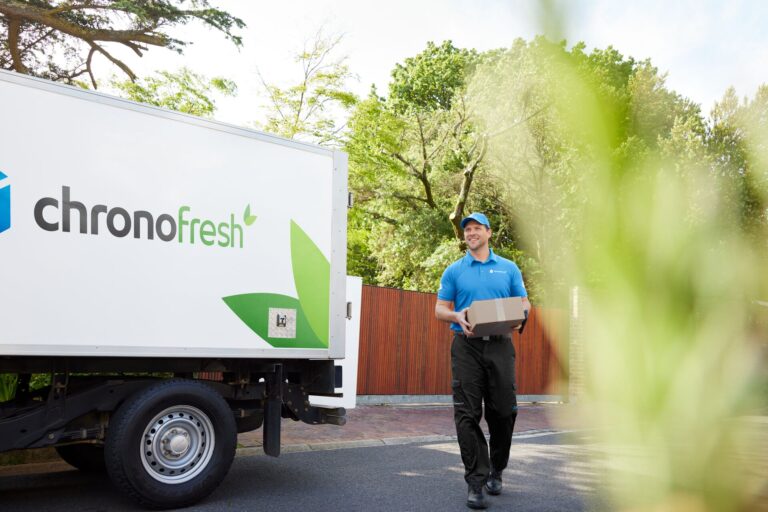
Demand for temperature-controlled delivery is growing fast ౼ but not all delivery systems are created equal! Discover how the Geopost business is adapting and innovating to manage temperature-sensitive storage and transport at scale.
Deep dive and discover >
Perfect pairings: innovation meets expertise
See how we keep the food chain flowing

BRT fresh and DPD fresh provide a full rundown on the ins & outs of temperature-controlled food delivery.

-
VIDEO: Sparking security & commerce
Chronofresh explains the importance of security in the supply chain and SEUR frío highlights how the digital discovery platform Singular is helping Spanish SME's.

DPD fresh Portugal and Pourdebon spotlight what’s next in food delivery and hyperlocal services.
Dessert: some sweet inspiration
The flavour-packed highlights of SIRHA Lyon 2025

From culinary competitions like Bocuse d’Or to interactive tasting zones at our stand, SIRHA Lyon 2025 was bustling with energy and innovation.
Take it to go: turning surplus into support
Fighting food waste and feeding communities with FEBA
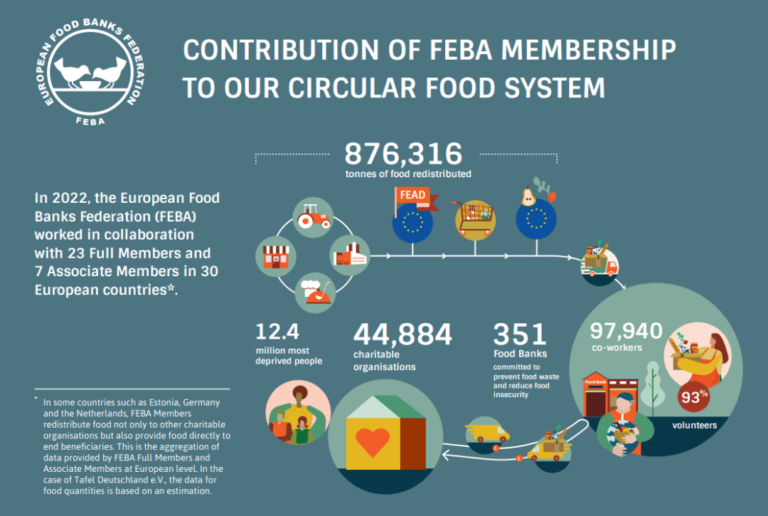
Can surplus food meet the needs of food-insecure communities? Learn how Geopost and partners like the European Food Banks Federation (FEBA) are tackling waste and making a social impact through a smart, sustainable network.
Check out our full interview with FEBA >
At Geopost, we are developing a comprehensive offer that works throughout Europe, designed around existing European legislation and laws. Because markets are so different, our network varies in how it serves them. Ready for a closer look?
Check out our comprehensive map of food delivery services throughout Europe >
At Geopost, we’re working to become the international reference in sustainable delivery ౼ collaborating and innovating to drive change forward and build long term value.
While it’s impossible to showcase them all, we’re excited to spotlight a few milestones that have made a significant impact across our entire network! Here’s how we’re building a smarter, more sustainable tomorrow — one step, story, and solution at a time.
Laying the foundation: reporting with purpose
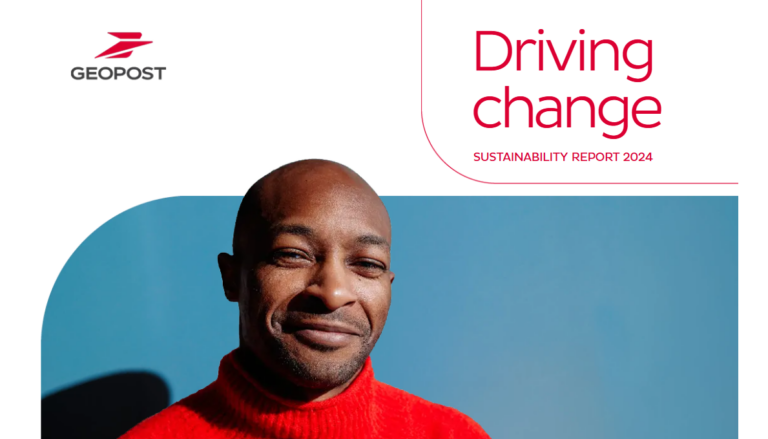
Our new Sustainability Report is live
From emissions reduction to circular innovation, inclusive workplaces and supporting our local communities, this year’s report dives into the real progress we’re making ౼ backed by data, partnerships, and people.
Explore the full report here
The cornerstone: priorities that shape the future

What’s next for sustainable delivery ౼ plus a network-wide pop quiz!
This short video breaks down our three core priorities for the year ahead ౼ then takes you across the Geopost network for a pop quiz that puts our people (and their expertise) to the test!
Check out the video
Smart design: when finance meets sustainability
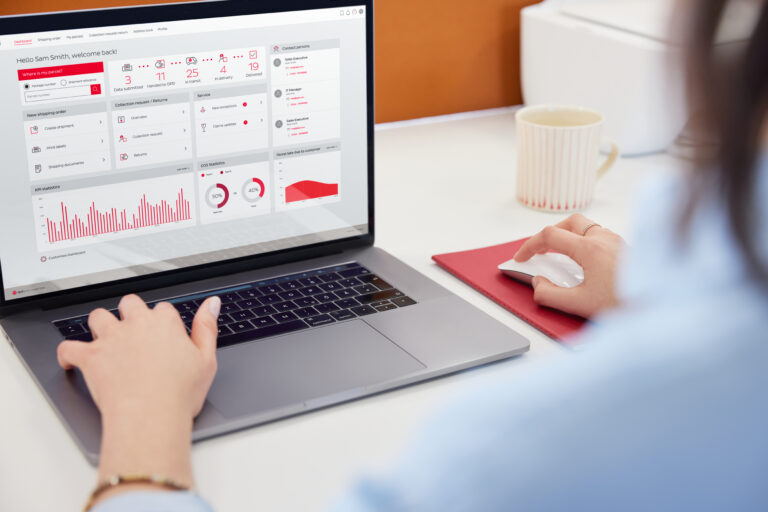
How can Financial Performance Become a Core Pillar of Sustainability?
In this cross-interview with Orange Group, we unpack how sustainability is being built into core business strategies ౼ not as a nice-to- have, but as a transformative driver of performance and resilience.
Check out the full discussion here
The results? In 2024, Geopost received the Sustainability Strategy Award at the Global Sustainability & ESG Awards for its concrete and coherent 2040 Net Zero strategy.
Measurement tools: emissions you can track
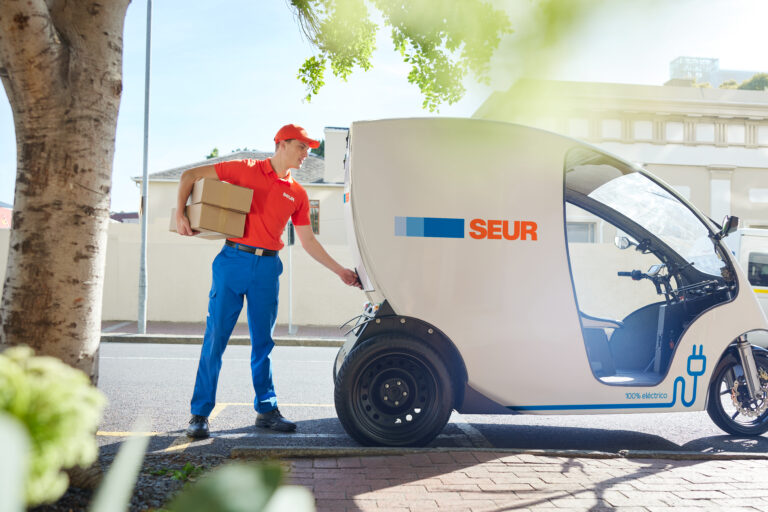
The Carbon Calculator is now available for all SEUR customers in Spain
Designed with and for customers, the Carbon Calculator allows businesses to track shipment emissions month by month ౼ and take action to reduce them! Now available via SEUR Pro for both domestic and international deliveries, the Carbon Calculator has officially expanded its reach to 21 of our businesses. Find out more below!
See how it works
Finishing touches: our people make it happen

From Estonia to South Africa, we put sustainability into action
Explore just a few examples of how teams across our network are turning strategy into action—from local community initiatives to digital tools that make our operations more efficient, inclusive, and ready for a better tomorrow.
Explore their stories
Biocair, an established global leader in life science logistics, today announces the further expansion of its operations in the APAC region with the opening of a new office in Shanghai, China. The office is collocated with its warehouse to facilitate operations and enable enhanced collaboration between operations, sales, warehouse and transportation teams. Biocair has achieved 25% business growth in APAC in the first half of 2025 and, with double the footprint of Biocair’s previous Shanghai office, the new site will support the company’s ongoing growth.
Biocair first opened a Shanghai office in 2009 as its primary APAC location and has since opened a further seven offices in the region. This new office is strategically located near Pudong International Airport as well as Pharma Valley in the Zhangjiang High Tech Zone. Following the recent opening of Biocair’s Chengdu office, this expansion further strengthens Biocair’s presence in the region and its position as a leading global logistics provider.
“The APAC region continues to show strong demand for comprehensive life science supply chain solutions. This new office in Shanghai will enable the Biocair team to continue to support our growing portfolio of APAC clients, as well as our global clients looking to ship goods to the region,”
Kevin Xu, APAC General Manager.
Biocair’s dedicated Shanghai team of logistics experts provide comprehensive knowledge of the APAC region including customs regulations and the local transport network. The company offers a full range of temperature controlled logistics services, including controlled ambient (15-25°C), refrigerated (2-8°C), frozen (-20°C), dry ice (-78°C) and Liquid Nitrogen dry shipper (-196°C). The team will also continue to build on Biocair’s presence in the region, strengthening business development activities. Biocair is committed to investing in its global network in order to provide complete end-to-end logistics solutions as part of its global growth strategy.
--
About Biocair
Since 1986, Biocair has established a global reputation as a leading GDP logistics specialist within the pharmaceutical, biotechnology and life sciences sectors. Biocair has built up a unique, client-centric approach by employing scientists in front-line logistics positions and assembling a team of best-in-class industry experts in quality, cold chain and regulatory compliance. Biocair focuses on providing the most comprehensive time-sensitive and temperature-controlled logistics services available whilst delivering flexible, tailored, cost-effective solutions to all its clients. It is committed to delivering complete end-to-end logistics solutions through its global network spanning across Europe, Africa, Asia and the Americas.
Biocair employs 475 people worldwide and provides specialist logistics services to more than 170 countries through a global network of partners. Biocair’s offices are located in the UK, France, Belgium, Germany, USA, South Africa, China and India.
In 2012 Biocair was acquired as an autonomous division by Geopost. Geopost is the largest parcel delivery network in Europe, which posted sales of €15.8 billion in 2024. Geopost is a holding company owned by Groupe La Poste.
For further information on Biocair, please visit www.biocair.com.
For more information, please contact:
Geopost maintains its strategic focus despite market headwinds
In a persistently complex economic environment, marked by continued macroeconomic pressures, Geopost delivered a resilient performance in the first half of 2025. While parcel volumes saw modest growth, Geopost recorded a €253 million operating profit, supported by solid performances in strategic segments such as out-of-home, international flows and food logistics.
Geopost reported a €7.629 billion revenue as of end-June 2025:
-
Geopost’s parcel delivery activity recorded a +1.8% increase in volumes, and a +0.8% increase of its revenue worldwide.
-
Asendia’s revenue declined by 13%, while maintaining solid and stable operating profit.
Strategic segments continued to show positive momentum:
-
Out-of-home volumes rose by +26 %,
-
International parcel flows increased by +4%,
-
Food logistics also recorded growth of 11%
-
These segments remain key levers for long-term differentiation and value creation in a transforming logistics market.
Geopost also maintained progress on its sustainability roadmap, continuing to decouple volume growth from emissions. Preliminary data show a 2.5% reduction in absolute carbon emissions within the SBTi scope in Q1 2025, driven by the expansion of its low-emission fleet and broader deployment of alternative energy solutions.
Yves Delmas, CEO of Geopost, said:
"In a persistently difficult and volatile environment, our first-half results for 2025 confirm Geopost’s ability to stay the course and deliver resilient performance. Despite continued market pressures, we have maintained our focus on serving consumers and businesses with agility and operational discipline across all geographies. Our three growth drivers – out-of-home delivery, food logistics and international flows – once again demonstrated strong results, reinforcing the relevance of our strategic choices. In parallel, we are stepping up our sustainability efforts, with continued progress on the decarbonisation of our operations across Europe. These resilient results and ongoing progress reflect both the strength of our model and the daily commitment of our teams across the business, whom I want to sincerely thank.”
Delivering results in a competitive landscape
The first half of 2025 remained challenging for the parcel and logistics industry, which continues to operate in a fragile macroeconomic and geopolitical environment. While inflationary pressures have eased, the sector still faces structural headwinds, including sluggish consumer demand, heightened price competition, and ongoing geopolitical uncertainty across several regions.
Geopost’s operating profit stood at € 253 million as of end-June 2025, compared to € 331 million at the same point in 2024. This decrease reflects a combination of persistent cost inflation, price competition and non-recurring items.
Continued focus on high-growth segments
In the first half of 2025, Geopost made significant progress in three strategic segments: out-of-home, international and food deliveries, which continue to reshape parcel delivery across Europe.
Out-of-home volumes surged by 26% by the end of June, confirming their central role in the group’s service model. Geopost also continued to strengthen its position in cross-border and specialised food deliveries during the first half of 2025, with a solid performance across both food and international segments.
Several Geopost business units including DPD Poland, Chronopost in France, DPD Latvia and DPD Lithuania significantly contributed to this momentum by deepening their presence in these segments and adapting to local market dynamics.
Chronopost confirmed also its position as the leading provider of BtoB deliveries in France. With solid growth, rising volumes and continued innovation, the company is reinforcing its role as a key partner for professionals across sectors.
Geopost has developed one of the densest and most extensive out-of-home networks on the market, enabling out-of-home cross-border deliveries between 28 countries in Europe. This achievement underscores Geopost’s commitment to providing customers with choice, flexibility and convenience through varied out-of-home solutions across Europe. As of June 2025, Geopost’s pan-European out-of-home network spanned 28 countries and totalled 138,000 parcel shops and lockers in Europe. As lockers are also growing fast in Europe, Geopost is accelerating its locker strategy and offers now almost 38,500 lockers (13,000 more than by June 2024). On lockers specifically, DPD UK signed in April 2025 a major strategic partnership with the YEEP! Network, adding 8,000 parcel lockers over the next five years.
In parallel, as food and temperature-controlled deliveries continue to experience strong and steady growth (+11% versus June 2024), Geopost’s Italian business unit BRT further developed its food delivery capabilities in Italy, strengthening its expertise and supporting the sustained growth of this high-value segment.
Maintaining sustainability at the core of Geopost’s strategy
Geopost has reduced its carbon emissions within the SBTi perimeter by 2.5% in absolute terms in the first quarter of 2024, equivalent to a reduction of 4% per parcel, amounting to 910 g/parcel, which demonstrates the ongoing improvements achieved by the Geopost network despite a parcel volume increase.
In June 2025, Geopost joined the Alliance for Logistics Innovation through Collaboration in Europe (ALICE) as a new member, to engage in EU-funded projects, contributing to urban logistics and emissions-focused groups and supporting policy development. In June, Geopost also proudly renewed its commitment to EV100, Climate Group’s global network of corporate leaders driving the transition to zero-emission road transport.
Geopost announced in its latest sustainability report that it has reached the milestone of 10,000 electric delivery vehicles operating across Europe. To support the charging needs of its current and future fleet, Geopost is actively developing and strengthening its charging infrastructure, including the deployment of smart charging solutions. Most recently, DPD Switzerland partnered with autoSense to become the first to trial the company’s chargeSmart technology. This system dynamically adjusts electric vehicle (EV) charging based on energy market conditions, the availability of renewable energy, and operating times. Key benefits of the solution include automating the charging process to occur when electricity prices are low and grid demand is minimal. This initiative follows DPD UK’s collaboration with BP Pulse to roll out rapid charging infrastructure across 17 sites, aimed at reducing operating costs and improving fleet efficiency.
--
About Geopost
Geopost, a European leader in parcel delivery and solutions for e-commerce, operates in more than 50 countries across all continents through its network of expert delivery brands, including: DPD, Chronopost, SEUR, BRT, Speedy, Jadlog and Asendia. Leveraging its industry-specific expertise, Geopost is further growing the development of out-of-home services with Pickup, one of the densest parcel shop and locker networks in Europe and is also expanding temperature-controlled solutions for the food and healthcare business. In a world of acceleration and transformation, Geopost engages and embraces new e-commerce territories with ESW via Asendia.
With 57,000 employees, Geopost endeavours to make commerce more convenient, profitable and sustainable for its customers and communities. Committed to becoming an international reference in sustainable delivery, Geopost is the first global delivery company to have its roadmap to Net Zero by 2040 approved by the Science Based Targets initiative (SBTi).
Part of the La Poste group, Geopost generated a €15.8 billion revenue and delivered 2.1 billion parcels worldwide in 2024.
For more information, please contact:
As logistics becomes more complex and competitive, companies are rethinking what they value in a supplier. Price and product quality are still critical, but they’re no longer the only factors driving decisions.
Today’s businesses are increasingly focused on a broader, more strategic set of criteria that reflects their evolving priorities, values, and operational needs. Let’s explore the key points for supplier selection and what truly matters to companies today.

#1: Reliability and trustworthiness: non-negotiable factors to consider when choosing a supplier
Reliability and trust are foundational factors – especially when it comes to logistics providers. In fact, 27% of European survey participants cited reliability and trustworthiness as “very important”. Why? Because dependable suppliers ensure safe handling and efficient, timely delivery ౼ all essential to maintaining smooth operations and customer satisfaction.
Spotlight: Trust and efficiency rank high in these countries
In countries like France, Germany, and Spain, reputations carry substantial weight. A negative experience with a supplier can be a decisive reason not to engage with them again. At the same time, in the Netherlands and Germany, 77% of respondents expect a supplier to quickly and efficiently resolve delivery problems – well above the 69% European average. This type of feedback shows that a trustworthy supplier isn’t just expected to meet expectations, but companies are looking for a supplier that can also resolve issues effectively when things go wrong.
Trust, once earned, becomes a strategic advantage – especially in an industry where service disruptions can ripple across an entire supply chain.
#2: Delivery predictability and availability: essential to business continuity
Another critical factor to consider when choosing a supplier is delivery predictability – and for good reason! Predictable delivery timelines help when managing internal workflows, production schedules, and staffing.
Among SMEs, 59% prioritise on-time delivery above all else. For larger businesses, predictability even outranks speed as the top aspect of the delivery experience. When parcels don’t arrive as scheduled, the impact is immediate. As one business put it: “If the parcel arrives out of schedule, more than likely the space for that parcel will not be prepared – nor the person to receive it.”
Spotlight: Predictability ranks high in these countries
Availability and delivery predictability also emerged as common pain points in Italy, the Netherlands, and Germany. Meanwhile, in France, 71% of respondents see "always being delivered on time" as a must-have – exceeding the 59% European average.
#3: How flexible invoicing factors into choosing a supplier
As companies navigate evolving markets and ever tighter margins, flexible billing has become a valuable asset when choosing a supplier. For 26% of SMEs, extended payment terms – spanning 30, 60, or even 90 days – are seen as essential or at the very least complementary.
Flexible invoicing offers companies a buffer for cash flow management and can serve as a deciding factor, especially for smaller businesses that operate on tighter margins. When a supplier supports smarter financial planning, they’re not just offering a service – they enable companies to grow.
Spotlight: Flexibility ranks high in these countries
This need is particularly evident in Italy, where 36% of SMEs consider longer invoicing terms “very important”. In markets like Poland, Czech Republic, Spain, Hungary, and Romania, inflexible billing terms are among the top obstacles to choosing a supplier.
#4: Operates in a fair and ethical way: the importance of sustainability
More and more businesses are prioritising suppliers that align with their ethical and environmental values. While 14% of SMEs currently cite fair and ethical practices as a complementary criterion, this number is set to grow – particularly as new regulations come into effect.
Evolving industry regulations
In Europe, the Corporate Sustainability Reporting Directive (CSRD) as well as EU taxonomy regulations are requiring companies to be more precise and transparent when it comes to tracking and reporting their carbon footprint.
Digital tools such as Geopost’s Carbon Calculator addresses this evolving need by giving customers access to detailed emissions data – helping them comply with regulation and live up to their sustainability commitments.
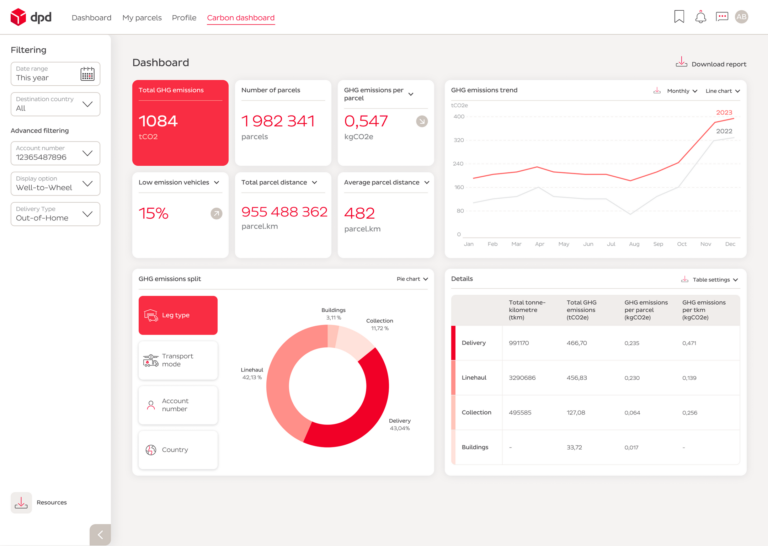
Suppliers with shared and certified values
Operating in a fair and ethical way also includes how suppliers treat their employees and partners. A growing number of businesses are factoring this into supplier selection decisions, with one customer noting: “Of course, now sustainability is at the order of the day. If they have certifications, even better.”
Spotlight: Sustainability ranks high in these countries
In Germany and the Netherlands, 45% of companies rank environmentally friendly delivery options as a key secondary criterion – compared to 36% in Europe overall. In Spain, lack of supplier sustainability is the most cited obstacle to doing business. For future-focused companies, sustainability isn’t a “nice to have” – it’s already a business-critical factor to consider when choosing a supplier.
In Spain SEUR is empowering their customers through data-driven solutions
SEUR recently gained strong media traction with around 15 mentions after sharing Geopost’s market research on what defines a great delivery experience for businesses. In 2025, SEUR made the Geopost Carbon Calculator available to their customers through SEUR Pro, opening up access to real-time carbon emissions data for both national and international shipments. It’s a clear example of how data-driven solutions can enhance visibility and strengthen market leadership.
Don’t forget about “Human and Digital” factors
While the criteria outlined above dominate today’s supplier selection process, new priorities are already beginning to shape the decisions of tomorrow. For example, companies are increasingly factoring in both human and digital capabilities when choosing a supplier.
The advantages of knowing your driver
Notably, 77% of SMEs value knowing their drivers – recognising the customer experience and operational value this familiarity brings. Similarly, 35% of SMEs are calling for improved customer support and better tracking tools – highlighting a need for more responsive, tech-enabled service.
The growing role of mobile apps
Apps are becoming increasingly relevant as well, with 75% of businesses expressing a desire to interact with carriers through mobile applications. Meanwhile, 19% suggest optimised delivery routes using advanced technologies as a future priority.
Adapting to these shifting priorities isn’t just a competitive edge, it’s a necessity
In short, choosing a supplier is no longer just about meeting basic needs. It’s about aligning with strategic goals, operational resilience, and brand values.
These trends suggest a shift toward more intelligent, connected, and customer-centric logistics. As businesses prepare for the next wave of transformation, they’ll increasingly need to understand and adapt to these evolving expectations to be better positioned to succeed in the dynamic marketplace of tomorrow.
Today’s leading businesses are choosing suppliers based on environmental impact, innovation capacity, and alignment with company values. At Geopost, we’re helping companies stay ahead of these shifting expectations – with smart, sustainable, and customer-focused delivery solutions.
Discover Geopost’s full range of services and solutions
DPD France, subsidiary of Geopost, unveils Singular, a digital showcase designed to promote the expertise of French small and medium-sized enterprises (SMEs). This initiative aims to support these SMEs in their e-commerce development by enhancing their visibility and facilitating access to new customers.
A simplified and rewarding shopping experience
Now available in France, Singular has already been rolled out in four European countries (Italy, Spain, Croatia, and Slovenia). Its launch in France will allow consumers to discover local, authentic, and high-quality products, carefully selected for their uniqueness and strong French roots. Navigation is seamless: each product page redirects users to the merchant’s e-commerce site, where purchases are made directly.
The platform is accessible through the DPD France website as well as the myDPD website, which attracts over 900,000 users.
A growth driver for partner clients
SMEs are at the heart of the French economy and represent a significant share of DPD France’s business activity. With the launch of Singular, DPD France reaffirms its commitment to supporting these vital companies by offering them free visibility for their products. The goal is to help e-retailers stand out in a highly competitive environment while highlighting their brand identity. This initiative aims to foster SME growth and facilitate their expansion both nationally and internationally.
Client testimonial - Baiham Paris
“The new Singular platform from DPD France offers a great opportunity for French SMEs, like Baiham Paris, to grow their e-commerce business by increasing their visibility and attracting new customers.”
A direct link between transport, visibility, and commercial performance
“At DPD France, we are much more than just a delivery service. We build strong relationships with thousands of merchants and SMEs across France. With Singular, we are taking it even further. This initiative provides a genuine digital showcase to highlight their expertise and the excellence of their products.”
Nicolas Morin, National Sales Director at DPD France
A curated selection of merchants
Singular has already attracted 10 French SMEs, including Baiham Paris, Nümorning, Melifera, JNPR Spirits, Eclae, Maison Verdier, Castex, Noham, Savonnerie Artisanale du Jura, Atelier Sophie Janière.
These partners embody the richness of France’s entrepreneurial landscape, with offerings spanning the most popular categories among online shoppers: fashion, beauty & wellness, home decor, and food.
More merchants will soon be joining the platform.
A powerful group dynamic on the rise
Singular is part of Geopost’s broader strategy to promote local brands on a European scale. Launched in 2024 in other group countries, the platform first debuted in Italy with BRT, then in Spain with SEUR, followed by Croatia (DPD Croatia) and Slovenia (DPD Slovenia). This European approach reflects the Group’s ambition to strengthen the visibility of SMEs in every country where it operates and to gradually expand these brands’ reach to other countries through the upcoming interconnection of all Singular platforms.
To date, Singular brings together 84 active merchants across all participating countries, 510,000 unique visitors, and a catalog 14,500 products, each carefully selected from SMEs for their expertise, local commitment, and the quality of their offerings.
--
About DPD France
Founded in 1995, DPD France is part of Geopost’s international parcel delivery network, the European market leader and a subsidiary of La Poste Group.
Serving businesses, DPD France operates through a network of 80 branches and 5 national sorting centers, supported by over 2,900 employees who handle and deliver more than 415,000 parcels daily. With its DPD CLASSIC Europe and DPD CLASSIC Intercontinental services, DPD France also helps clients expand internationally, leveraging the strength and quality of Geopost’s global network.
DPD France offers three key strengths to support its clients: a strong local presence, with sales and customer service teams based in each of its 80 branches, its DPD out-of-home delivery service, with more than 10,000 Pickup points across France, as well as its interactive delivery service Predict, allowing recipients to reschedule deliveries to fit their personal needs and constraints.
In 2024 alone, DPD France delivered over 110 million parcels.
Explore all available products on Singular
For more information, please contact:
Delivery is not just about parcels–it is also about ensuring a seamless experience for everyone involved, from businesses to their customers. That’s why Geopost has been engaging in a dialogue that goes beneath the surface to better understand what really matters to companies that receive parcels as part of their daily activities. We sat down with Geopost Market Research Director Carmen Cureu to discuss these evolving factors:
-
What drives supplier selection?
-
How does the delivery experience impact daily operations?
-
What role does trust, reliability, and human interaction play in choosing a delivery partner?
-
And more!
Our goal: better understand what really matters to companies that receive parcels as part of their daily activities.

Following the sad passing of Jason Lombard, Andy Van Der Velde is appointed Chief Executive Officer of DPD South Africa, effective on 15 September 2025.
With over 25 years of experience in logistics, freight, and express services, Andy Van Der Velde brings a wealth of industry knowledge and leadership expertise. His career spans key roles at UTi, Berco Express, and Aramex, where he has consistently demonstrated a strong track record of driving growth and operational excellence.
Recognized for his entrepreneurial mindset and results-driven approach, Andy Van Der Velde will oversee the strategic direction and performance of DPD South Africa. After the significant turnaround led by his predecessor, Jason Lombard, DPD South Africa is now firmly back on a positive trajectory in terms of performance. Andy Van Der Velde will be tasked with continuing and further accelerating this strong momentum in the years to come.
Commenting on this appointment, Benjamin Démogé, EVP Geopost, Africa, Middle East, Asia said:
“We are embarking on a new chapter for DPD South Africa, building upon the solid foundations established by the late Jason Lombard. With Andy Van Der Velde’s extensive experience and strategic mindset, we are confident in the team’s ability to maintain and enhance the positive momentum DPD South Africa has achieved. Andy's leadership will be crucial in unlocking new opportunities and driving long-term success.”
--
For more information, please contact:
The company is deepening its support for small businesses, connecting the Spanish National Football Team with a small haberdashery in Albal (Valencia) through a tale of resilience, hard work, and hope
SEUR, Spain's leading urgent transport company and Official Transport Provider for the Spanish National Football Team, has launched a moving campaign to reaffirm its support for SMEs and its solidarity with those affected by DANA in Valencia.
In the campaign video, under the slogan "Juntos repartimos ilusión," players from the Spanish National Football Team receive red hair ribbons from a SEUR delivery driver. These ribbons, embroidered with words like "pride" and "effort," were made by the owner of a small haberdashery in Albal, a town in Valencia province affected by the environmental disaster.
These ribbons not only represent the national team's spirit of overcoming challenges, but also the strength of small and medium-sized businesses. Like this haberdashery, they are one of the country's main economic drivers. Similarly, the campaign illustrates the importance of not walking alone, reminding us that behind every shipment the company makes, there are personal stories beyond just packages.
Taking the concept of the invisible thread connecting people, businesses, and dreams, SEUR highlights values like resilience, shared hope, and the effort to keep going despite any adversity. The company positions itself as the helping hand that lifts up Spanish SMEs.
Eugenia Llorca, SEUR's Head of Marketing and Communications, emphasizes:
"This campaign reflects the values that represent SEUR, SMEs, and the Spanish National Football Team alike: perseverance, collaboration, and resilience in the face of challenges we encounter along the way. These are also the pillars upon which all small businesses affected by DANA are admirably rebuilding. Through this campaign, SEUR wants to pay them a small tribute, and we'll continue working with them daily to help them return to normalcy as soon as possible."
Through this initiative, SEUR reaffirms its commitment to supporting those who work hard every day, from the dreams of a local shop to the thrill of a national team that inspires an entire country.
To access the video, click here.
--
About SEUR
Our more than 80 years of history have allowed us to be pioneers in urgent transport in Spain, with three main business areas: international, e-commerce, and B2B business.
Thanks to our more than 10,000 professionals and our fleet of 6,500 vehicles, we provide services to businesses of all sizes and sectors. As part of Geopost, one of the largest international urgent transport networks, we make deliveries worldwide.
We constantly invest in innovation and infrastructure to be closer to our customers and offer greater flexibility. We do this through solutions like Predict, an interactive system for scheduling deliveries, and SEUR Now, for super-urgent deliveries within one to two hours. We're also committed to sustainable logistics, integrating alternative delivery systems in major cities. This includes using eco-friendly vehicles, urban hubs, and our Pickup network, which boasts over 9,500 points, including convenience stores and lockers.
For more information, please contact:
Home / Page 3
